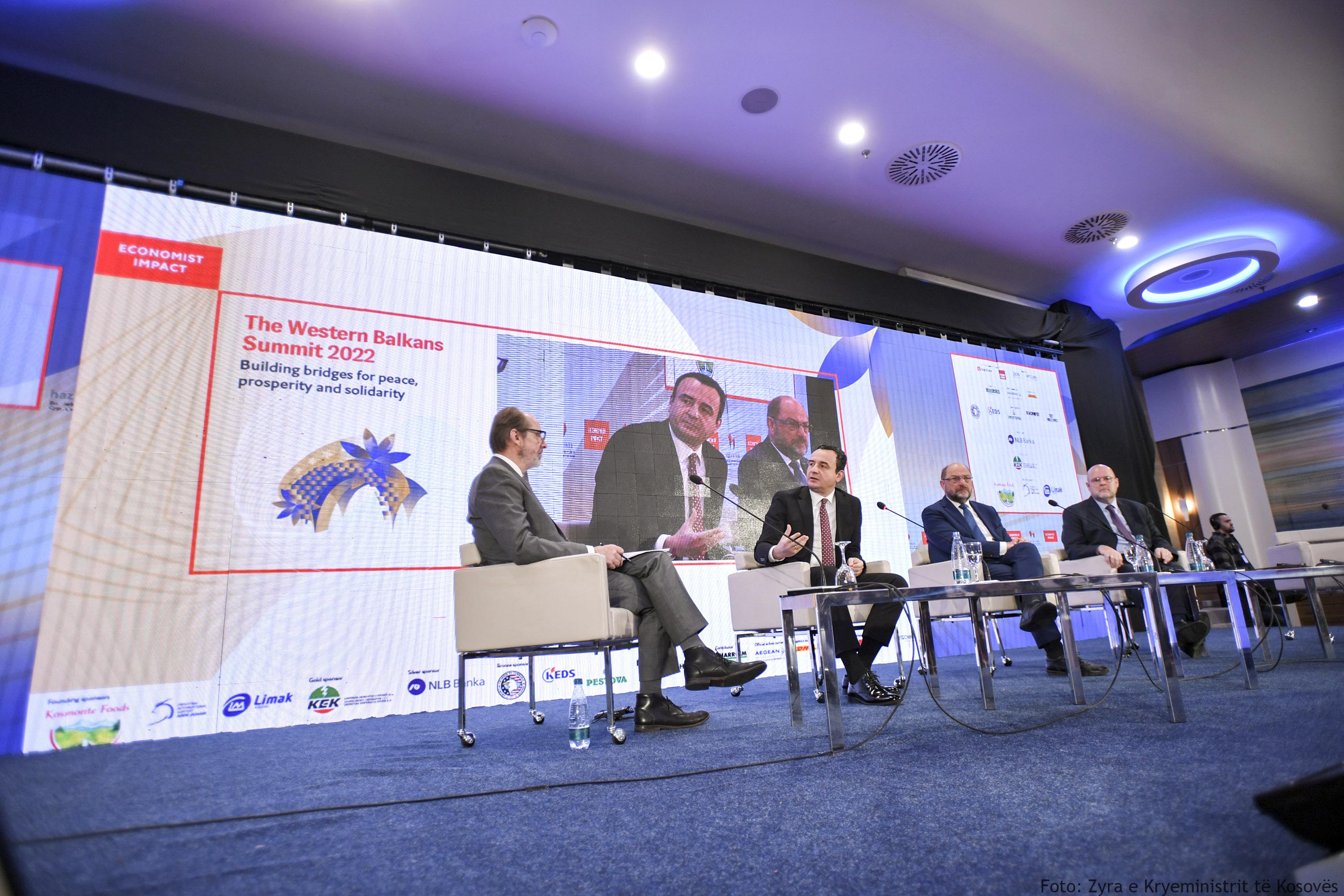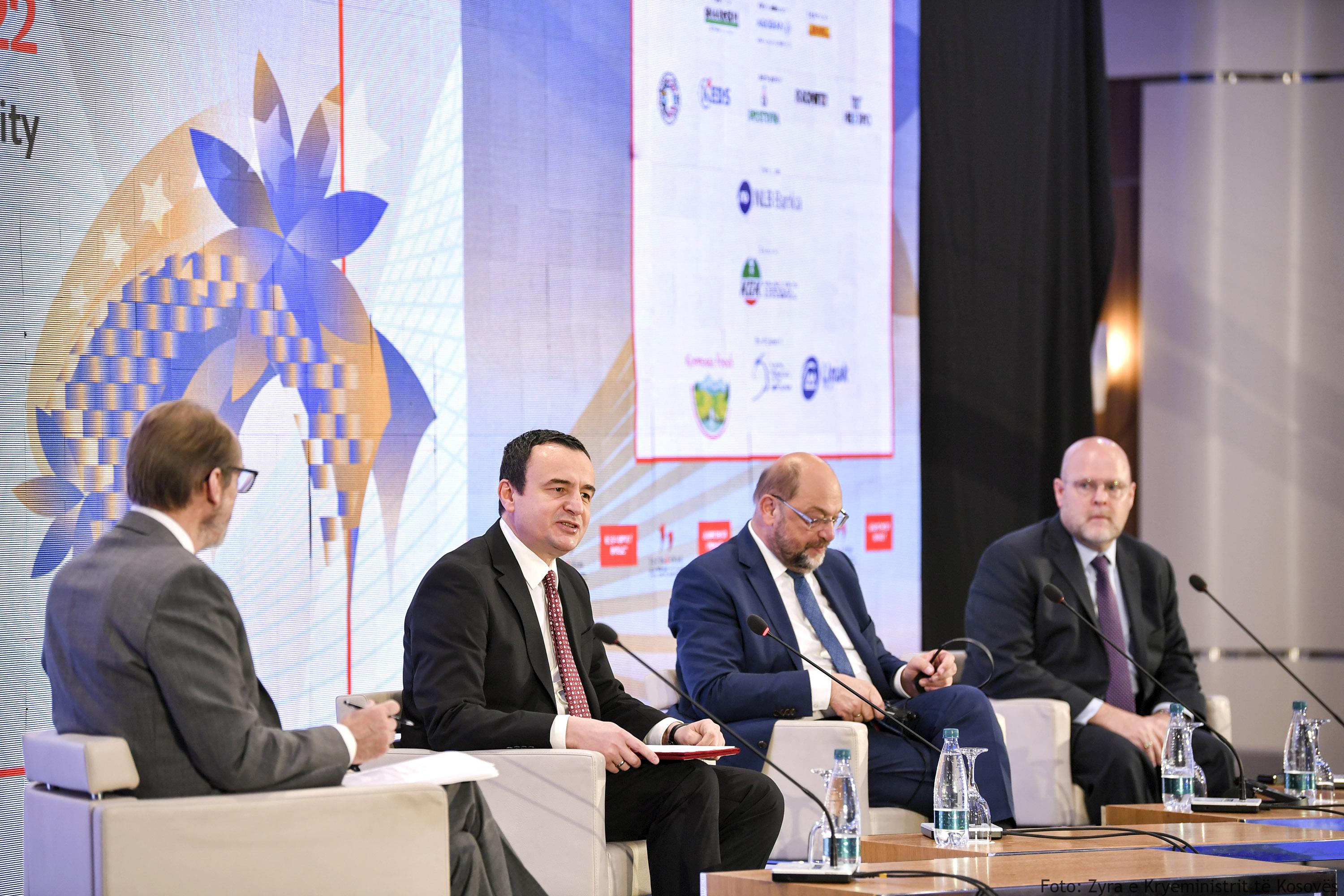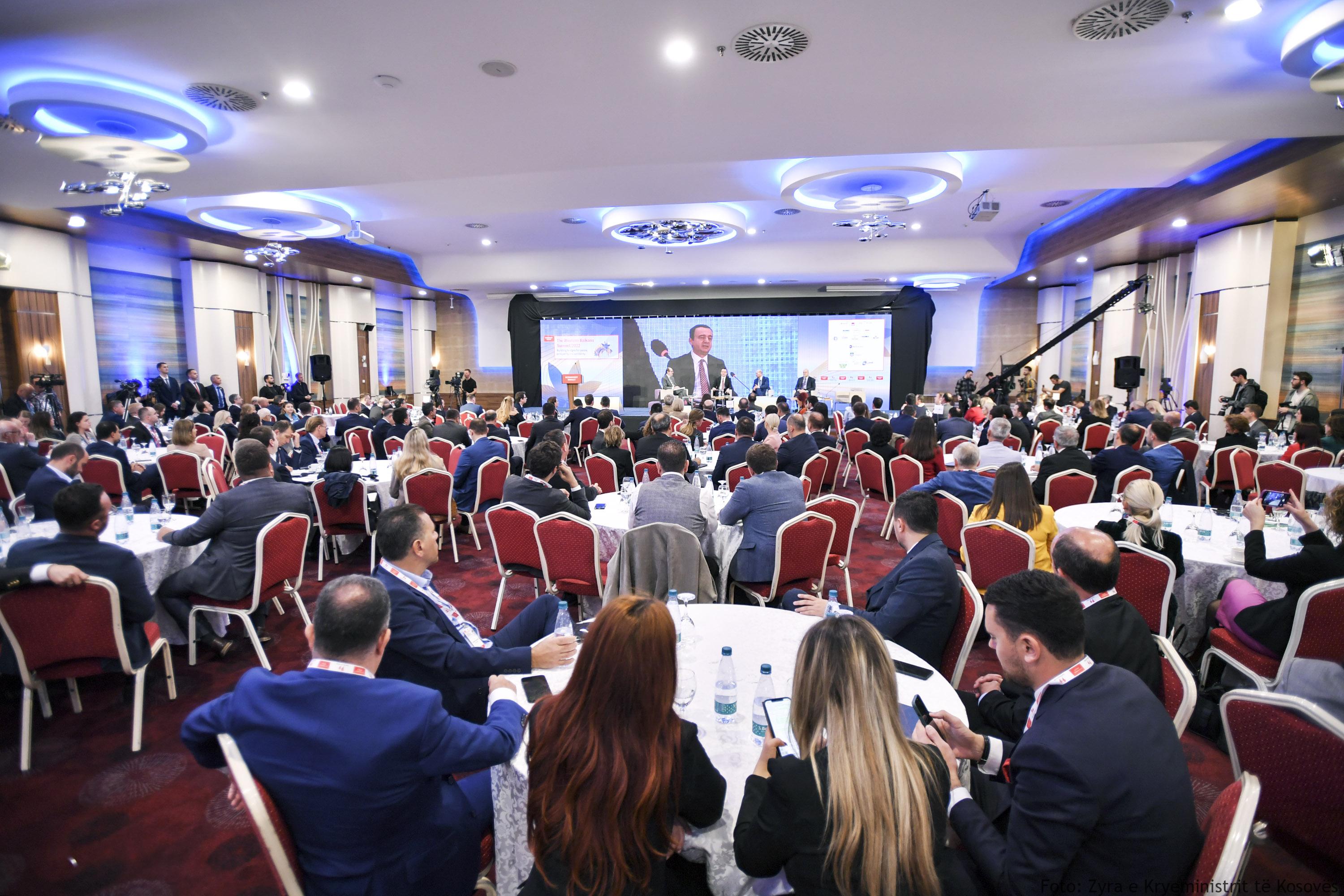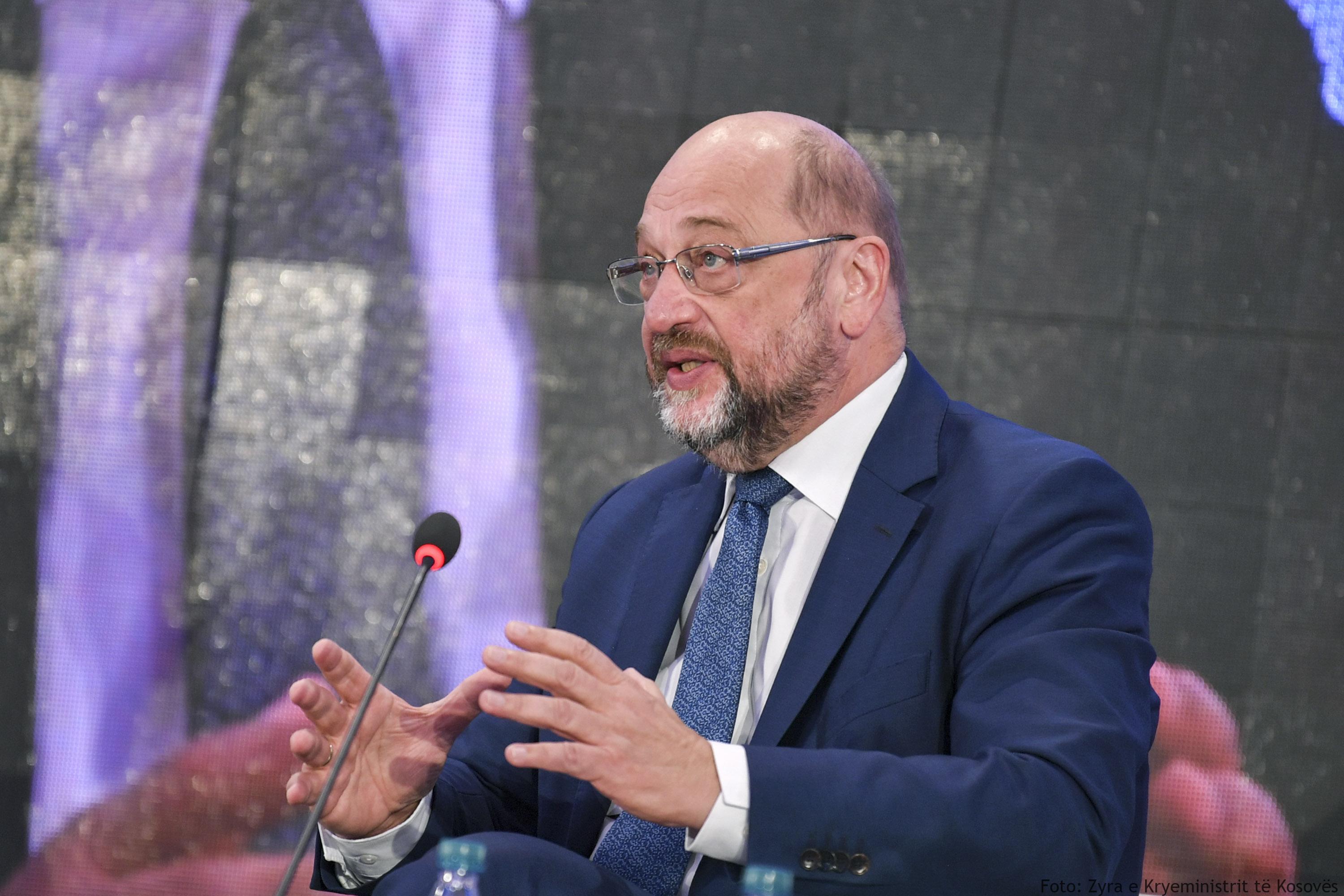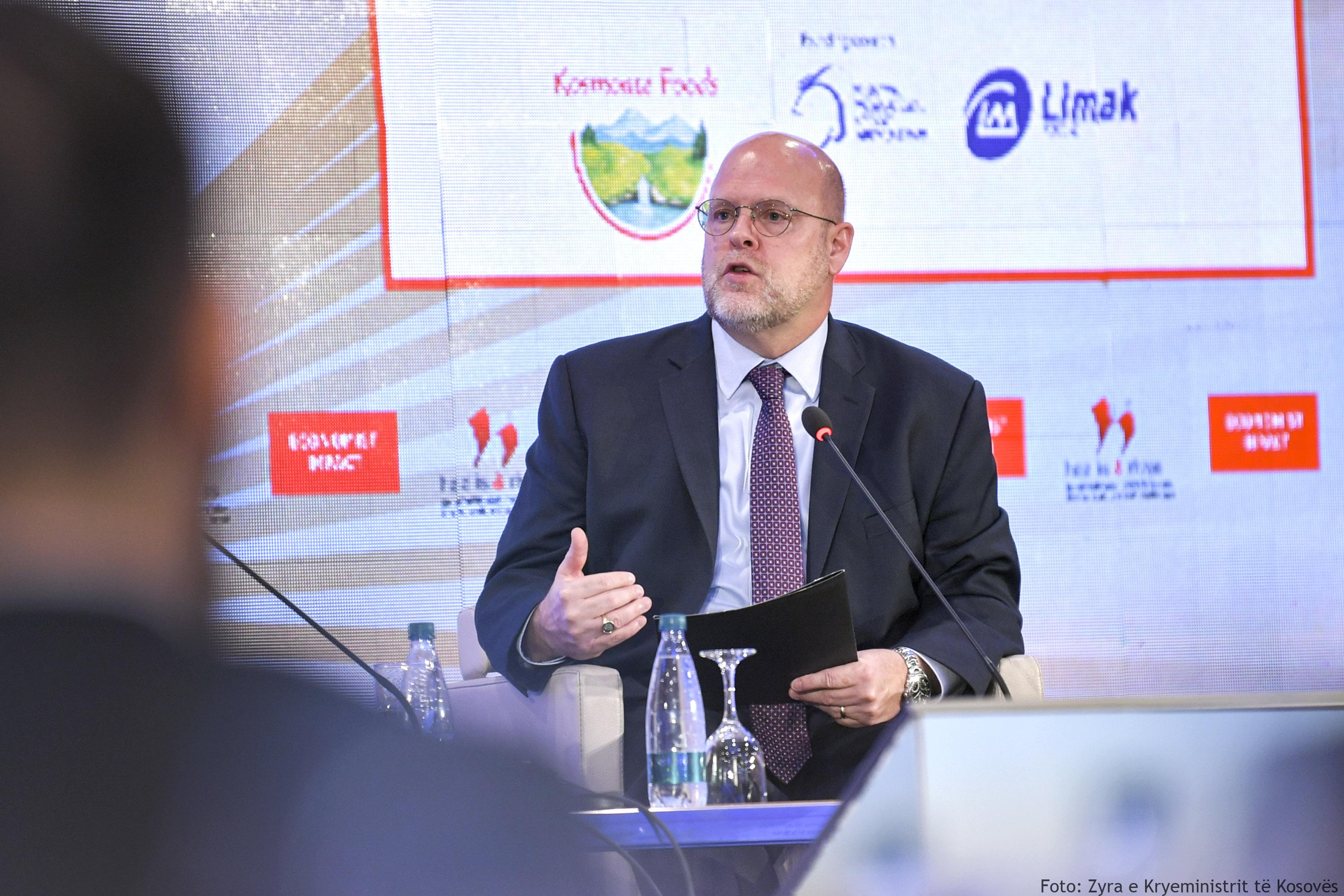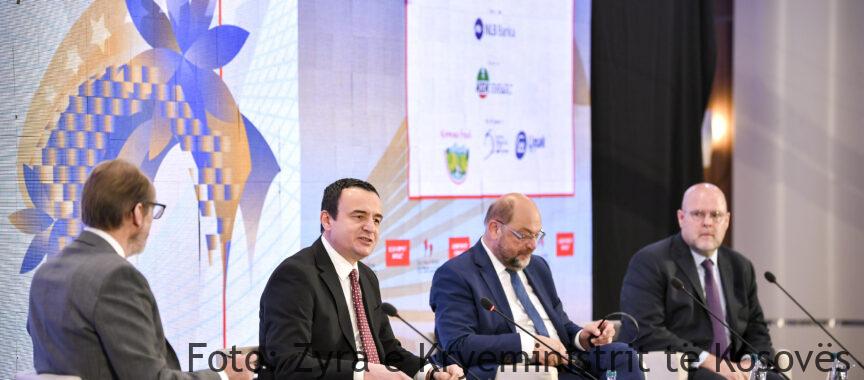Prishtinë, 25 tetor 2022
The Prime Minister of the Republic of Kosova, Albin Kurti, participated in the opening of The Western Balkans Summit 2022, organized by the prestigious The Economist, in cooperation with the Office of the Prime Minister of the Republic of Kosova.
Prime Minister Kurti’s full address:
Mirëmëngjes zonja dhe zotërinj,
Good morning ladies and gentleman,
A very warm welcome to all our distinguished guests who have travelled to the Republic of Kosova to attend today’s important event: The Economist’s Western Balkans Summit 2022, on the timely theme of “Building bridges for peace, prosperity and solidarity.” And many thanks to the organizers for inviting me to introduce the first panel discussion, entitled: “Removing the barriers to sustainable growth, prosperity and stability for the Western Balkans.”
Both the theme of the summit as a whole and the subject of this first panel are large and important topics. We could easily spend one week discussing them, rather than one hour or one day. My goal in these opening remarks will therefore be far more modest. Using the Republic of Kosova as an example, I hope to show that the key to achieving sustainable growth, prosperity, stability, and peace — not only in the Western Balkans, but also in Europe and beyond — is democracy. By “democracy,” I mean specifically: the establishment and promotion of well-functioning democratic states, and solidarity among such states.
Our Government took office on March 22, 2021, with a commanding popular majority. Only one and a half years later, we have already shown that democracy and economic progress go hand-in-hand. Of course, essential to democracy is the closely related principle of rule of law. A democratic government, to borrow the words of John Adams, is a “government of laws, not of men.” This is because the laws, having been approved by elected representatives, are the ultimate expression of the will of the people. Therefore, a truly democratic state must ensure that the law is fully respected by all, and equally applied to all — to the rich and to the poor, to the strong and to the weak.
Under our Government, the Republic of Kosova has made great strides toward that ideal. In the past year, we improved by 17 places in the Transparency International Corruption Perception Index, and another 17 places in Reporters Without Borders’ World Press Freedom Index. And we are number one in the region regarding rule of law, according to the World Justice Project.
Since we took office, law enforcement authorities have conducted around 800 police operations against economic crimes and corruption, and arrested over 2.000 people, including approximately 300 public or state officials. They have disbanded 68 criminal gangs and confiscated over 1.7 tons of illegal drugs. And just last week, prosecutors sequestered 75 villas that had been illegally constructed in a national park. The list of owners was shocking, but not surprising: high-ranking judges, wealthy businessmen, politicians and their close relatives. The era of official corruption and high-level impunity is fast coming to an end.
Our progress on democratization has been equally matched by our economic advancement. We ended last year with 10.7% of GDP as economic growth and an 83.6% increase in exports, food and beverages, ICT sector, leather, textile and especially wood and metal processing. Foreign direct investment in Kosova has likewise increased by 47,6%, and tax revenues by 34%, without changes in fiscal policy. We have created over 25.000 new jobs. And this year’s budget is the largest in the history of our country.
When I say that democracy and economic progress go hand-in-hand, I am making not only a logical but also a causal claim. Yes, contrary to what some of the world’s dictators seem to believe, there is no inherent contradiction between democracy and economic success. But beyond that, our democratic reforms have also directly contributed to that success, in at least three distinct ways. First, foreign companies are much more willing to invest in a country if they are not forced to bribe public officials in order to enter the local market. The days of “pay to play” in Kosova are over. Second, individuals and businesses are more likely to pay taxes when they know that their money will be spent responsibly by the state, rather than stolen by corrupt politicians and their relatives. And third, when people are optimistic about the direction of the government and the country, they tend to spend rather than save. In all of these ways, our democratic reforms have helped power forward our economic progress.
But despite this progress, we are always striving to do more to help our citizens weather the multiple crises afflicting the world today. Here also, Kosova can provide a useful blueprint — a blueprint for how a well-functioning democracy can successfully manage a crisis for the benefit of all citizens, especially those least advantaged.
This is especially significant, because Kosova is fighting a tough battle against the two most worrying economic threats confronting the world today: drastically reduced energy supply and rapidly increasing prices, especially of basic goods. Due to the past governmental inaction and neglect, these problems are hitting Kosova’s citizens harder than citizens in some other countries. For instance, over the previous two decades, there has been an almost complete lack of investment in new sources of electricity generation. This was combined with a failure to conduct the necessary repairs to keep our already-existing power plants fully functional. As a result, Kosova has become excessively reliant on the import of electricity. Similarly, there has been a lack of government support for domestic producers and industries over the same period of time. This has made our citizens vulnerable to the rapidly increasing prices of foreign-produced goods.
In the face of these unique challenges, our Government has been guided by two overriding objectives. The first is a short-term objective: ensuring that our citizens are shielded as much as possible from the worst effects of the present predicament. Along these lines, we are currently enacting a substantial inflation-relief package. That package subsidizes electricity bills for those who reduce their electricity consumption. For example for the amount of the energy that you wsave per month in this autumn and winter, in comparison to the same month of last year, we are going to double the subsidy of households. It also provides financial relief to pensioners, recipients of social assistance, students, and public-sector employees. And finally, it offers incentives to private-sector employers to increase their workers’ wages in order to soften the blow of rising prices. Every private company which decides to increase the salary of their employees, we are going to subsidize 50% of the increase.
Together with these short-term measures, our Government is also taking steps to address those long-term problems that made our citizens excessively vulnerable in the first place. In the energy sector, we are implementing a new ten-year strategy that focuses on securing new sources of electricity, especially renewable sources. We have negotiated and signed a 236.7 million dollar compact with the Millennium Challenge Corporation that will contribute substantially toward that aim. The compact allocates funds for a range of priorities, including battery storage to increase efficiency and enhance energy security. It will also expand employment opportunities in the energy sector for women and youth.
Furthermore, we have implemented a number of permanent changes that will help citizens overcome both the current economic challenges, and also future such challenges. Thus, among other initiatives, we have introduced long-overdue subsidies for new mothers and children, for the first time in the Republic of Kosova. We have increased pensions by 11%, including pensions for disabled persons by 33%. And for the first time in our country’s history, public higher education is completely free of charge, only for PhD you have to pay a bit. On the private-sector side, we have allocated 108 million euros to aid in the expansion of local production and export industries. In the long run, this will reduce the exposure of citizens and businesses to fluctuations in the prices of imported goods.
I want to close this address by saying a few words about the connection between democracy and peace, in addition to the connection between democracy and economy, especially in light of Russia’s illegal war. History has shown us time and again that autocratic rulers, accountable to no one but themselves, often make liberal use of war as a means to personal glory, territorial expansion, or financial gain. By contrast, accountability to the people makes democratic states generally averse to war. If Russia were a genuine democracy, it would most probably never have invaded Ukraine. And likewise, if Serbia were a genuine democracy — rather than a one-party state where the opposition has no chance of winning — it would not pose such a serious threat to long-term peace in our region. In this sense, President Biden’s effort to promote democratic values around the world can just as well be seen as an effort to preserve peace among nations. By contrast, autocrats turn their backs on their people to embrace one another.
Nowhere is this tendency on greater display than in the increasingly cozy relationship between Russia and Serbia. To begin with, Serbia still refuses to join EU and U.S. sanctions against Putin and the wealthy oligarchs who help him remain in power. And since the war began, Belgrade has turned a blind eye to Russia’s aggression, war crimes, and other human rights abuses. President of Serbia has displayed no qualms about entering into two major agreements with his friend in the Kremlin. The first agreement, negotiated in May, secures for Serbia a three-year supply of natural gas from Russia. This is at a time when Russia has radically reduced its supply to EU countries, thereby deliberately aggravating the current energy crisis. The second agreement, signed just last month, is even more alarming. According to that deal, Belgrade and Moscow have agreed to conduct mutual consultations on foreign-policy matters going forward. We have long known that Serbia wants to have it all: Russian guns and Chinese investments on one hand; European money and American tolerance on the other. But Russia’s invasion has revealed something that we had long feared, though not yet known with certainty: Faced with the choice between democracy and autocracy, Belgrade is sending increasingly clear signals that it would choose the latter over the former.
In stark contrast to our northern neighbor, Kosova has proven itself to be a reliable partner, and a faithful ally, to all other democratic states. We enthusiastically participated in Defender Europe 2021 alongside 26 other countries, and we are among the first to join U.S. and EU sanctions. We have provided shelter to over 1.800 refugees from Afghanistan, and nine journalists from Ukraine, who are now residents of our capital city, Prishtina. In short, our foreign policy is driven by the firm conviction, that the democratic world must speak with one voice. It must act with ironclad determination, toward a common purpose. Now is not the time for neutrality, but for solidarity. The prospects for perpetual peace — not only in the Western Balkans, but also in Europe and beyond — depend on what we choose to do, together.
Thank you very much.
Last modified: October 25, 2022
